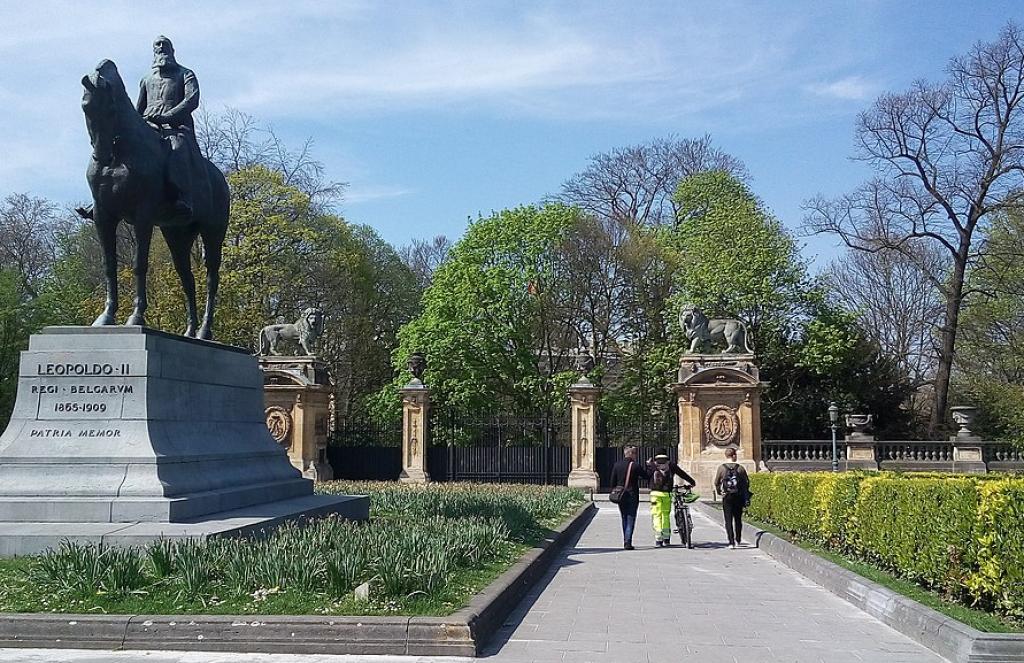Thessaloniki gets ready for its metro launch in November
The underground rapid transit lines have been under construction for almost two decades due to various project delays
 TheMayor.EU logo
TheMayor.EU logo 
The statue of Leopold II sits close to the Royal Palace, in the heart of the Belgian capital , Source: MatteoNL97 on Wikipedia, CC BY-SA 4.0
One of the first proposals is to either remove or melt down Leopold II’s statue in Brussels
On 17 February, Brussels regional authorities met with the commission on decolonising public spaces to review their report on the topic. The commission did not recommend a systemic removal of colonial symbols dotting the country, instead, they opted for a measured and well-reasoned analysis on a case-by-case basis.
Secretary of State for Urbanism and Heritage Pascal Smet talked to VRT, explaining that the report put forth recommendations that authorities should examine thoroughly. He also praised the commission’s team for their nuanced take on the problem, arguing for consideration of all factors, before taking action.
At the same time, he said that the findings should not be forgotten or shelved. He explained that this would spark debate in parliament and also that he hopes the first measures for decolonising urban spaces would be issued by September.
One of the more striking points the report makes is the case of the equestrian statue of Leopold II on the Place du Trône in Brussels. Leopold II was the Belgian king between 1865 and 1909 and, through his efforts, he became the sole owner of the Congo Free State colony between 1885 and 1908, now known as the Democratic Republic of Congo.
Leopold II’s rule of the Congo is characterised by particular brutality and blatant disregard for human life. The colony’s main export was rubber and failure to meet rubber quotas was punishable by death.
Furthermore, the mercenary Force Publique, running the operation, was required to bring the hand of every person they shot as proof of a kill. This was partially a way to account for used bullets which were a costly import from Europe. As a consequence, rubber quotas were partially paid with severed hands.
The Congo colonial regime had a heavy death toll and historical estimates put the total casualties between one and 15 million people. This figure, however, is disputed by some historians due to a lack of reliable census data.
Nevertheless, reports of conditions in the Congo Free State caused an international scandal in the 20th century, prompting the Belgian government to force the king into relinquishing control over the colony in 1908.
Regardless of this unfortunate part of history, the report also recognises the function of the equestrian statue on Place du Trône as both a symbol of the Belgian monarchy, as well as a significant landmark.
Thus, they recommend various recourses, from the moderate to the not so moderate. One option put forward is to raise a temporary structure concealing the statue, which provides information on Belgian colonial history. Another option is removing the statue and leaving an empty base.
The statue would then be stored in a depot for similar statues. The plinth could then be used as a space for temporary artistic interventions. The last option is to melt the bronze sculpture and re-forge it into a memorial commemorating the victims of colonialism.

The underground rapid transit lines have been under construction for almost two decades due to various project delays

Now you can get your wine in Talence by paying directly in Bitcoin

That’s because the state has to spend money on updating the railway infrastructure rather than subsidizing the cost of the popular pass

Rethinking renewable energy sources for the urban landscape

The examples, compiled by Beyond Fossil Fuels, can inform and inspire communities and entrepreneurs that still feel trepidation at the prospect of energy transition

Now you can get your wine in Talence by paying directly in Bitcoin

The 10th European Conference on Sustainable Cities and Towns (ESCT) sets the stage for stronger cooperation between the EU, national and local level to fast track Europe's transition to climate neutrality.

At least, that’s the promise made by the mayor of Paris, Anne Hidalgo

The underground rapid transit lines have been under construction for almost two decades due to various project delays

At least, that’s the promise made by the mayor of Paris, Anne Hidalgo

Hostal de Pinós is located in the geographical centre of the autonomous region

Despite its church-y name, the district has long been known as the hangout spot for the artsy crowds

Urban dwellers across the EU are having a say in making their surroundings friendlier to people and the environment.

Forests in the EU can help green the European construction industry and bolster a continent-wide push for architectural improvements.

Apply by 10 November and do your part for the transformation of European public spaces

An interview with the Mayor of a Polish city that seeks to reinvent itself

An interview with the newly elected ICLEI President and Mayor of Malmö

A conversation with the Mayor of Lisbon about the spirit and dimensions of innovation present in the Portuguese capital














